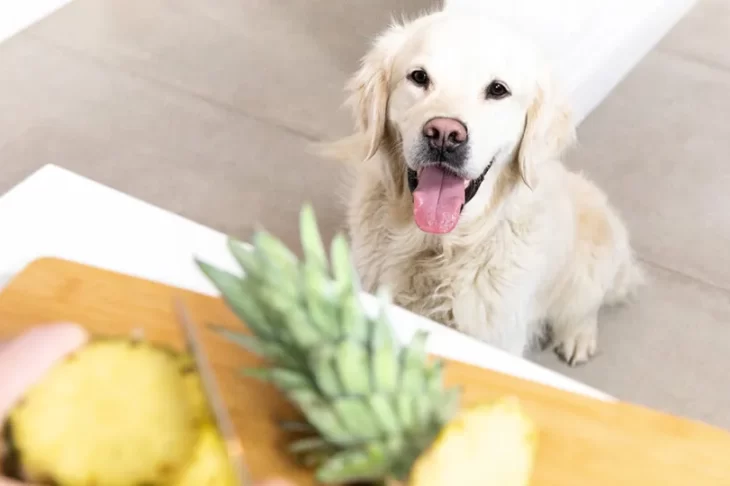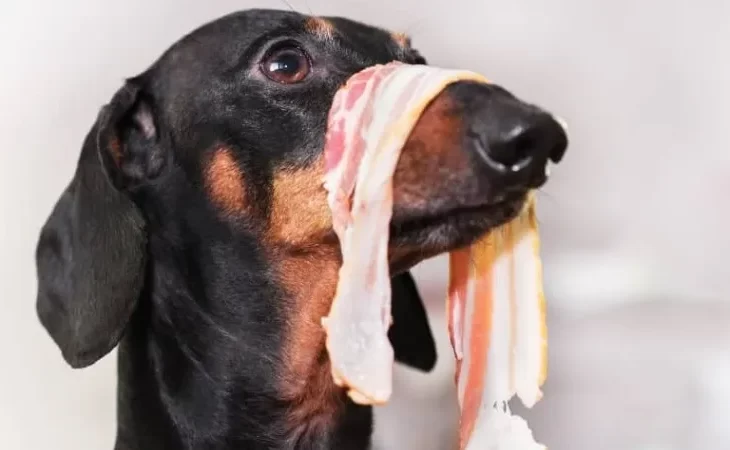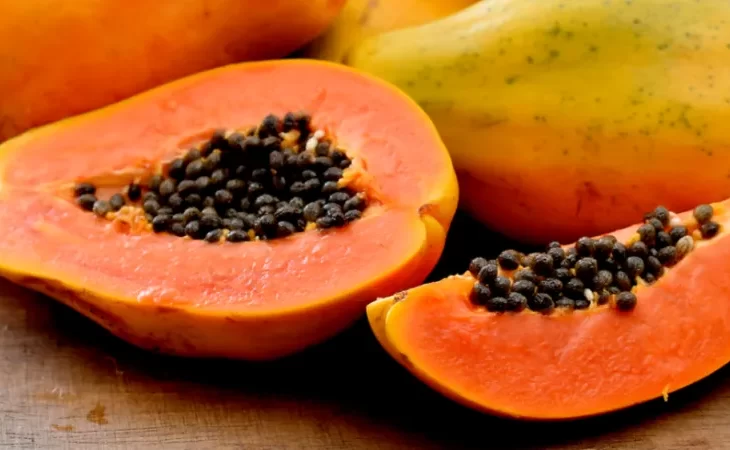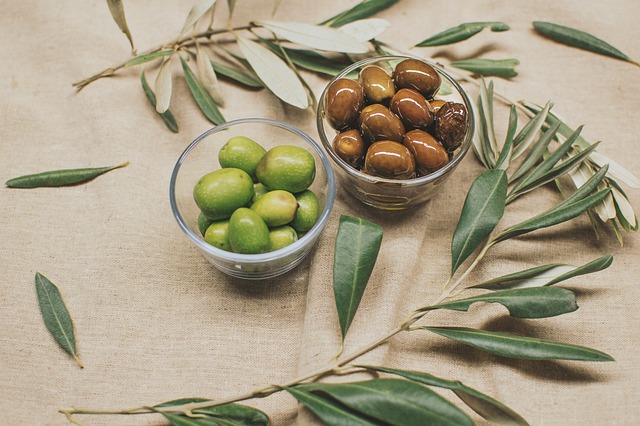
Can Dogs Eat Olives? Are Olives Safe for Dogs?
Can dogs eat olives? The bitter treat from the Mediterranean region is stuffed with vitamins, minerals, and good fats. Even the reduction of cholesterol and the prevention of heart disease can benefit from them.
Yes, dogs can eat a few plain olives safely. But in order to keep your pup happy and healthy, you must adhere to a few strict rules, just like with many human foods.
Numerous types of olives exist, but we typically only think of red and green olives when classifying them. So, do dogs eat both?
Table of Contents
Are Olives Safe for Dogs?
In moderation, dogs can eat olives. Despite the fact that dogs fed a complete and balanced diet don’t require these extra nutrients, they contain a number of vitamins and minerals crucial for human health. But plain, unsalted olives can be a nutritious treat for your dog. Despite the fact that they are a nutrient-dense source of proteins and healthy fats, eating too much can make your dog’s diet too calorie-dense.
Although olives don’t naturally contain any toxic substances, the pits can be dangerous. Dogs who eat olive pits risk choking or breathing difficulties. They may lodge in your dog’s intestinal tract and obstruct airways. The pits can also break teeth.
Dogs rarely have issues when eating plain, pitted olives. Those that are pickled or canned, however, frequently have too much sodium in them. For dogs, consuming too much sodium can cause dehydration and even toxicity.
Garlic, seasonings, or oils on olives add to the dangers. These ingredients are found in many Mediterranean dishes, so use caution. Olives can occasionally be found in drinks. The fact that you should never give your dog olives that have been soaked in alcohol should go without saying given that dogs cannot tolerate alcohol.
For advice, speak with your veterinarian if your dog eats a lot of olives. It could be dangerous to consume an excessive amount, particularly if they still have the pits inside.
Although olives are safe for dogs, they may not always be the best option for a canine snack. Discuss the best treats for your dog’s diet with your veterinarian at your dog’s next checkup.
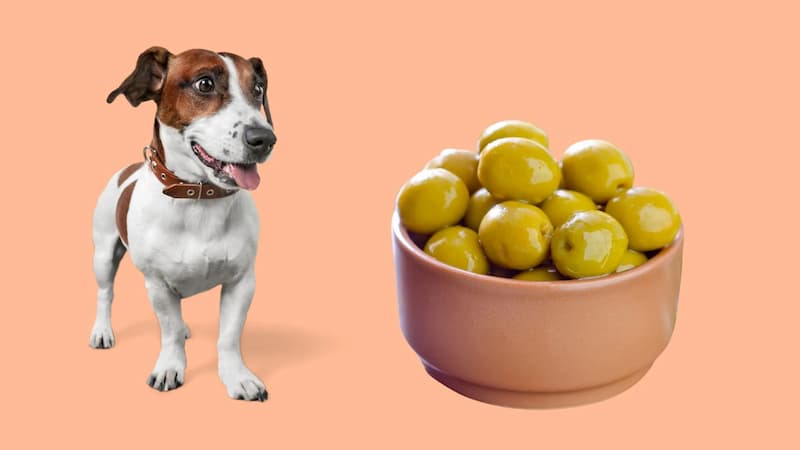
What Olives Are Safe for Dogs to Eat?
Can Dogs Eat Green Olives?
Green olives are safe for dogs to eat. Your dog can safely eat a few of them without any risk because their flesh is not toxic. That is, provided that there is nothing on or inside the olive that could make them ill. Instead of the olive’s color, it is more crucial that it be plain and pitted.
Can Dogs Eat Black Olives?
Black olives are edible by dogs, yes. Since they are harvested later to give them time to acquire their distinctive color and flavor, black olives are actually the same as green olives. (A bit like how peppersare all the same, they’re just different colours depending on when they are picked.) Dogs can consume both black and green olives without any issues. Just remember to remove the pit and stay away from giving your dog stuffed or seasoned olives.
Can Dogs Eat Stuffed Olives?
Here is where you need to exercise extra caution. To counteract the saltiness of the olive, different ingredients are frequently stuffed or added to it. Some may include a garlic clove, a piece of pepper, or even cheese.
The common ingredients you should keep an eye out for are onionsand garlic, as both are toxic to dogs. Other common foods used alongside olives includejalapeno or chilli peppers, which are not toxic but are irritating for dogs. Because of the high salt content, you should use caution when eating anchovies, which are frequently used in stuffed olives and are safe for dogs. In the meantime, you shouldn’t give your dog chorizo, so keep olives and the hot sausage away from the dog.
I would strongly advise against giving your dog a stuffed olive just to be safe. It might be okay if you are certain that whatever is inside the olive is not poisonous to your dog. However, it’s usually best to keep any olives your dog consumes plain.
Can Dogs Eat Olive Oil?
As long as it’s only a small amount, yes, your dog can even eat olive oil and it is considered “safe” for dogs to eat in moderation. Small dogs can consume up to a teaspoon of oil, while larger canines can consume up to a tablespoon. But your dog shouldn’t consume olive oil every day.
To give their dogs’ coats a glossier appearance, some owners occasionally add a spoonful of olive oil to their dog’s dinner. Although, if your dog is eatinga healthy, balanced diet, they shouldn’t need any sort of supplements to keep their fur healthy.
But dogs shouldn’t eat a lot of oil, just like humans shouldn’t. It’s quite heavy on the stomach, so many pups withsensitive stomachsor gastrointestinal issues can be sick after eating olive oil. And although it’s considered a “healthy” fat, it’s still a lot of fat. Pups withpancreatitisdefinitely shouldn’t be fed olive oil because it could cause a flare-up of the disease.
Consult a veterinarian if you’re concerned that your dog’s coat isn’t as thick, glossy, and healthy as it should be. Hair loss is sometimes a sign of a deeper issue. Otherwise, make sure your pooch is getting all the nutrition they need with a natural dietand their fur should become fuller and fluffier without any additional ingredients.
Are Olives Nutritionally Beneficial to Dogs?
Canines may benefit nutritionally from eating olives as a snack. There is some evidence that olives may help to lower inflammation and cholesterol, improve cognitive and immune system health, prevent heart disease and cancer in dogs, and are rich in the vitamins A, E, and K as well as potassium, zinc, calcium, iron, and a variety of other nutrients.
Though they really don’t require the extra vitamins and minerals that olives offer if your dog’s diet is nutritionally complete. The nutrients necessary for a healthy dog are already being consumed by them. Not to mention the fact that they would have to eat a lot of olives to actually get those nutritional advantages in the first place, which would simultaneously be dangerous due to the high sodium content of olives.
Is It Dangerous to Feed My Dog Olives?
Although olives are generally safe for dogs to eat in moderation, they can be dangerous, especially when unpitted or consumed in large quantities.
Remove the Pits
A dog should never be given an olive with a pit in it. A swallowed hard pit can cause an obstruction and result in vomiting, diarrhea, dehydration, bloating, pain, and weakness in dogs, while a hard pit that gets lodged in the throat can easily cause your dog to choke.
A dog may experience severe issues if it tries to chew an olive pit. A tooth may break or develop other dental problems if you eat the hard nut.
Too Much Sodium is a Bad Thing
Because olives must be cured in order to taste good, they are high in sodium, and just like humans, dogs can have health issues from having too much sodium in their diet. Even though it’s okay to occasionally give your dog an olive, it’s not a good idea to include them regularly in their diet. An excessive amount of salt can cause tremors, fever, seizures, vomiting, diarrhea, and even death.
Some Dogs Are Sensitive to New Foods
Because they are omnivores, dogs can eat anything as long as it is not toxic, including meat, vegetables, and fruit. However, eating olives may inevitably make some dogs sick, whether it’s because of delicate digestive systems, allergies, or another health trigger. Fatty olive consumption can increase the risk of pancreatitis in dogs who are already eating a high-fat diet.
When giving your dog an olive for the first time, start with a tiny taste and watch them closely for the next few hours to make sure they are not exhibiting any negative reactions, such as vomiting and diarrhea, abdominal pain, increased thirst, or loss of appetite.
Even if your dog enjoys the flavor of olives and has no trouble consuming them, they shouldn’t be a regular part of their diet. Instead, consider olives as a rare, nutritious treat you can share.
Recap: Can Dogs Eat Olives?
Yes, you don’t need to worry if your dog eats a few olives because they are not toxic. Both black and green olives are safe for your dog to eat, but it’s crucial to check that they don’t contain pits and haven’t been flavored with anything toxic to dogs, like garlic. As always, you should only give your dog a small amount of olives because a lot of them can be unhealthy for them.
Feeding your dog a nutritionally complete meal will satisfy their stomach and make them happy instead of letting them snack on your snacks. Pureis natural, nutritious and bursting with flavour to make sure your dog enjoys their meal every time. With any luck, they won’t beg you for yours anymore.
Read about

